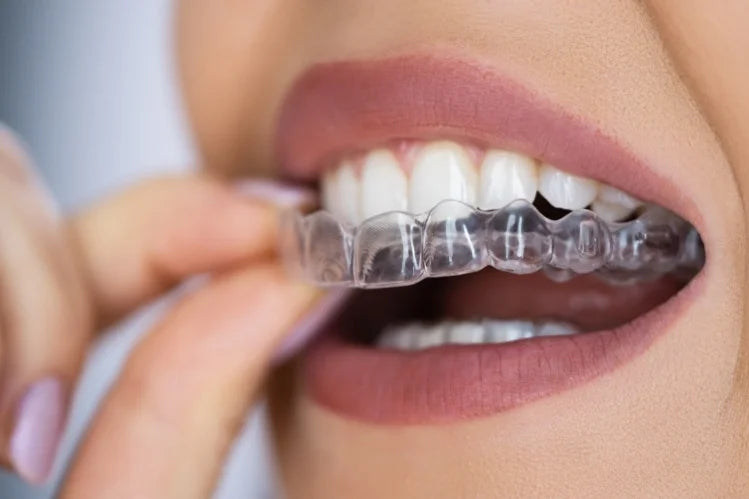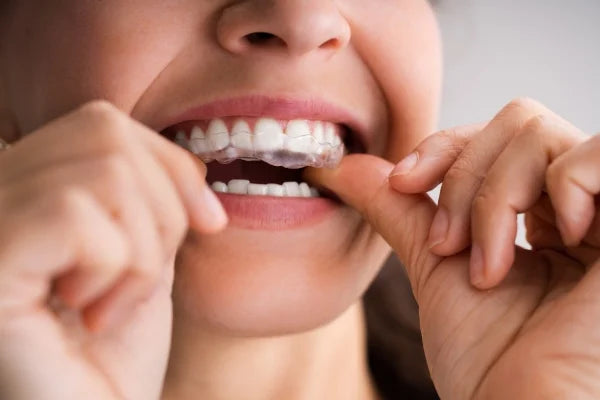
Teeth shifting is a common dental concern that can affect anyone. Anything from natural aging to other dental issues can lead to the shifting of your teeth. It is essential to address it promptly before it completely impacts your smile. However, there is no need to worry anymore. Get a complete understanding of teeth shifting, its causes, and risks. Moreover, this guide includes all the helpful tips to prevent your teeth from shifting.
Understanding Teeth Shifting
Teeth shifting refers to the process where teeth move out of their original alignment. It can be due to various underlying reasons. However, it is important to understand that teeth shifting is not just a cosmetic concern but can also lead to further dental complications. Addressing teeth shifting early is important to save your smile.
Causes of Teeth Shifting
Some of the reasons that lead to the shifting of teeth include the following:
Aging Factor
According to research, as an individual ages, the jaw bone loses density and shrinks. This shrinking of the jaw makes teeth mismatched, making them more prone to crowding. This condition is somewhat more common among women as compared to men.
Orthodontic Relapse
If an individual has recently undergone orthodontic treatment, there is a chance of their teeth shifting back to their original position. Proper post-orthodontic care is required to prevent an orthodontic relapse and protect your hard-earned smile.
Teeth Grinding
Teeth grinding or clenching is a common dental condition in which individuals grind their teeth at night. This periodic clenching can lead to damaging your tooth enamel, further causing your teeth to shift from their place.
Tooth Loss
A missing tooth can be the cause of any injury or illness. The presence of space between teeth due to that missing tooth slowly makes the surrounding teeth drift away from their positions. It is one of the reasons for the shifting of teeth.
Gum Disease
Gum disease, also known as periodontal disease, can be one of the major causes of teeth shifting. As the disease progresses, it eats away at the bone and muscle surrounding your teeth, leading to loosened teeth and consequential shifting.
Risks of Teeth Shifting
Aesthetic Concerns
The major risk of teeth shifting is its impact on the overall appearance of an individual. For some, it may not be a major concern, but others might notice a huge difference in their smile, affecting both their appearance and confidence.
Gum Recession
Teeth shifting leads to misalignment, which causes the bite forces to be distributed unevenly. When some teeth are subjected to excessive pressure, the gums may become strained and eventually recede. It may also cause teeth to become less stable to their positions.
Bite Misalignment
As your teeth start to shift, another risk that develops is the issues related to bites. Bite misalignment further leads to temporomandibular joint disorders (TMJ), jaw pain, and chewing problems.
How to Prevent Teeth Shifting
Teeth shifting can be more than just a cosmetic concern, it is why it must be addressed properly, in time. By following the steps mentioned below, individuals can prevent their teeth from shifting and ensure a healthy mouth.
Wear Retainers

If you have recently gotten your teeth straightened, you must include retainers in your post-care treatment. It takes a lot of hard work and investment to get straighter teeth. You wouldn’t want your hard-earned smile to go to waste. Retainers are the orthodontic devices that help to maintain your newly achieved smile.
Good Oral Hygiene
It is extremely important to maintain good oral hygiene to prevent yourself from developing any gum diseases and plaque formation. In the spaces between your teeth and gums, bacteria can grow if you don't practice good dental care. Additionally, it may permit your teeth to flex. Maintaining dental hygiene can prevent this from occurring.
Protect Your Teeth from Grinding

Teeth grinding and clenching are common dental issues that are faced by individuals of all ages. However, bruxism can be easily controlled by wearing a dental night guard. A dental night guard is worn on both arches that help to separate them in order to prevent them from grinding. A night guard helps stop your teeth from grinding protect your smile and prevent them from shifting.
Teeth Alignment
One factor that can cause teeth shifting is an incorrect bite. Get your teeth checked, if you observe any issues with the alignment of your teeth as you bite down. An orthodontist might examine your bite and recommend orthodontic appliances like braces, or clear aligners as a remedy for misalignment that prevents teeth from shifting.
Additional Tips for a Healthy Mouth

Regular Brushing
Maintaining good oral hygiene through daily brushing and flossing is extremely important. A soft-bristled brush and fluoride toothpaste are advised to clean your teeth effectively without causing any damage.
Avoid Tobacco Usage
The usage of tobacco and related products can have detrimental effects on the oral health of an individual. Tobacco or smoking can lead to the accumulation of plaque that further leads to a higher risk of gum diseases and other conditions that lead to teeth shifting from alignment. To ensure a healthy mouth, it is essential to avoid smoking and tobacco usage.
To sum it up, teeth shifting is a concerning dental issue, and by opting for proper dental care one can prevent their teeth from shifting. Individuals can maintain their teeth in their natural position by following some of the simple steps. It will not only ensure a healthy mouth but overall good oral health..
FAQs
Teeth shifting is a common problem that can be caused due to certain factors including changes in the jaw structure, missing teeth, tooth wear, changes in health conditions, or due to an orthodontic relapse.
Yes, through proper dental care one can prevent teeth from shifting. For instance, wearing retainers after getting an orthodontic treatment, and using a dental night guard to avoid teeth grinding and clenching.
An individual who has just undergone an orthodontic treatment should wear retainers as post-orthodontic care. It prevents an orthodontic relapse and sustains teeth to their new position.
Yes, grinding or clenching puts pressure on the teeth, which can result in shifting.



 Australia
Australia New Zealand
New Zealand Malaysia
Malaysia English
English Portuguese
Portuguese English
English English
English English
English English
English English
English Canada
Canada